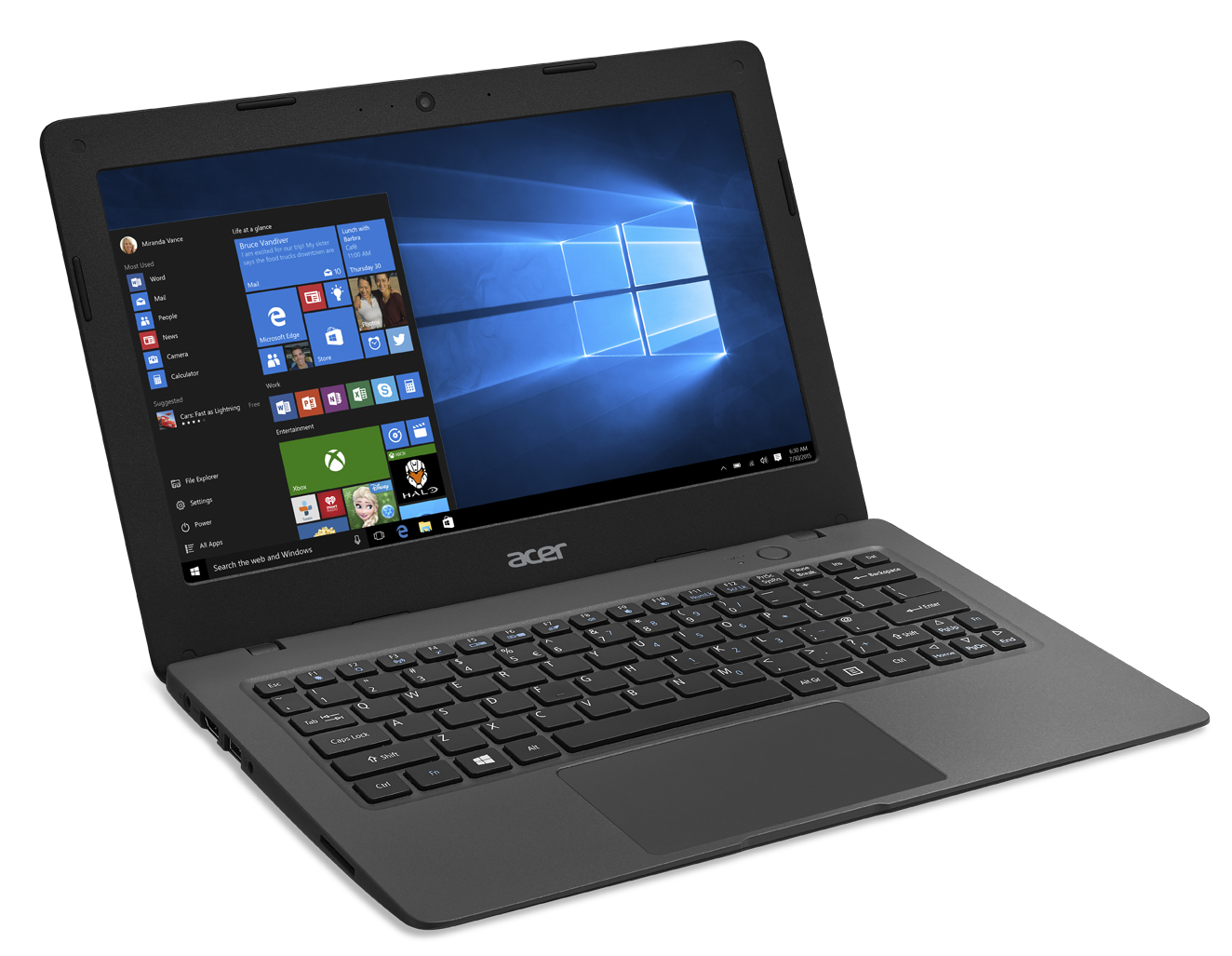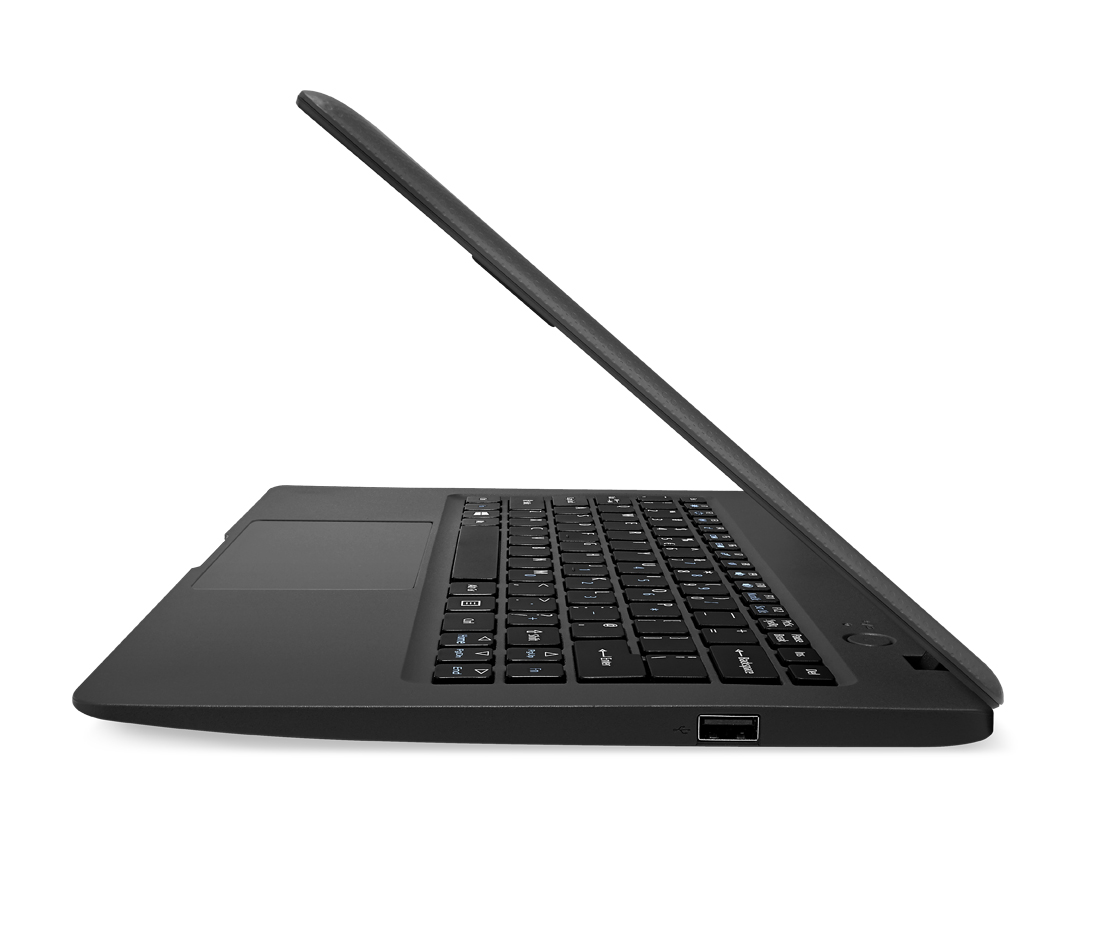What Is Acer's Cloudbook?
Acer is working on a new product known as a Cloudbook, but what exactly is a Cloudbook? We pressed Acer for as many details as we could get, but the company isn't saying much. We did get some info on the system, however, and we can speculate about the rest.
What we do know about the Cloudbook so far is that at least one model will be a small 11.6-inch laptop, designed for students and school use. It will run a complete version of Windows 10, and it will only cost $169.
Given the name and the relatively inexpensive price tag, our hypothesis is that this is essentially a Windows-based take on the Chromebook. Although Windows is still used on the majority of computers, Chromebooks have been growing in popularity over the years thanks to their low price tag. Chromebooks opt to use the Chrome OS instead of Windows, and they don't require as much storage space as the Windows OS. Utilizing less powerful hardware, small storage capacities, and avoiding the cost of Windows allows OEMs to sell Chromebooks for considerably less, in some cases, than their Windows-based counterparts.
Microsoft surely doesn't want to let Google take this portion of the market without a fight, but because of the added cost of Windows, OEMs aren't typically able to produce systems as cheap as Chromebooks, unless they used the free Bing version. Acer, in typical fashion, wants to make sure its product stack extends as far as possible, and has apparently found a way to produce a Windows 10-based series of notebooks for an almost absurdly small amount of money.
In terms of explaining the devices' name, Chromebooks typically have very little storage space to keep costs low, and rely on online storage and applications for basically everything else. The Cloudbook would likely follow the same design, opting to have the OS on a small SSD, and store everything else on a cloud server. Thus, it would need to rely more on web-based applications than local ones, to save space.
Because it comes with Windows 10, the Cloudbook has one prominent feature that it can use to gain the upper hand on the Chromebooks, too. On a Chromebook, if you don't have the Internet, your local apps options are limited, but on a Windows system, even one with a severely limited storage device, you can run all Windows programs natively. Further, you can do a lot more without an Internet connection, too.
Regardless of what extra features the Cloudbook possesses, the hardware will undoubtedly be limited. Outside of the 11.6-inch form factor, Acer didn't give us any definite details about the internals, but at $169, there isn't exactly room in the budget for high performance parts. At best, the Cloudbook will likely use an Intel Atom CPU, with 2 GB of DDR3, and a 64 GB (or smaller capacity) SSD. The system could also utilize an ARM-based SoC such as Nvidia's Tegra or even one of Qualcomm's Snapdragons to keep costs even lower.
Get Tom's Hardware's best news and in-depth reviews, straight to your inbox.
In fact, there is already a PC on the market that is very similar to this Cloudbook. The HP Stream 11, which has been out for over a year now, is a relatively inexpensive PC costing $199.99 that has 32 GB storage, 2 GB RAM, and an Intel Atom CPU. It even comes with 1 TB of OneDrive cloud storage for the first year, and it already competes on price with Chromebooks.
But one system isn't enough to compete with the full line of Chromebooks. Acer's Cloudbook manages to undercut the others on price, and as a result it will represent tough competition with both HP's Stream lineup and Chromebooks from various OEMs.
Acer plans to announce additional details on the Cloudbook in August. We're curious to learn more.
Follow Michael Justin Allen Sexton @LordLao74. Follow us @tomshardware, on Facebook and on Google+.

